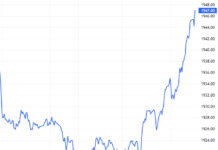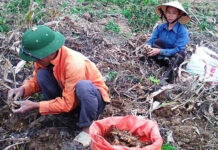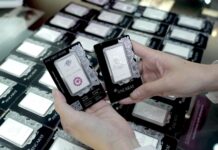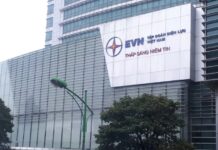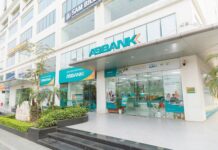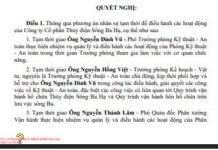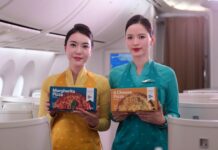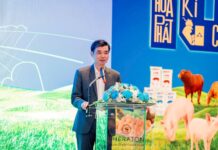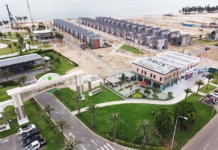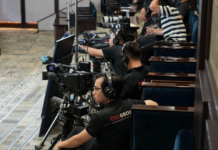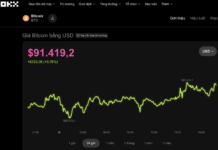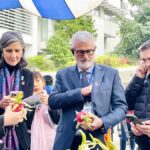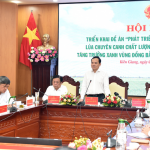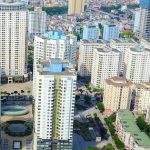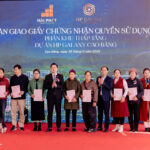On July 6, 2023, the International Center for Sustainable Aquaculture and Fisheries Development (ICAFIS), a subsidiary of the Vietnam Fisheries Society, partnered with the JAPIFoods brand of WinEco Vietnam Joint Stock Company to launch the “Blue Ocean – Blue Foods” program. This initiative aims to address climate change impacts, reduce greenhouse gas emissions, improve the marine environment, and enhance community livelihoods.
SEAWEED AS A GREEN RESOURCE TO CURB GREENHOUSE GAS EMISSIONS
Mr. Dinh Xuan Lap, Deputy Director of ICAFIS, highlighted that Vietnam is among the six countries most vulnerable to climate change globally. In 2022, Vietnam emitted 344 million tons of CO2 annually, ranking 17th in the world.
According to research by Vietnamese scientists, there are over 887 species of seaweed in the country, with 90 of them having economic value. In 2023, the seaweed farming area reached approximately 16,500 hectares, with a production of 150,000 tons of fresh seaweed. Seaweed and oyster farming are developing as profitable businesses in coastal provinces, serving as food, food processing ingredients, cosmetics, and medicine.
“Seaweed is a green resource that can absorb carbon from the atmosphere and neutralize ocean acidification. It is expected to become a solution to clean the planet. Seaweed can store 1,500 tons of greenhouse gases per square kilometer.”
Mr. Dinh Xuan Lap, Deputy Director of ICAFIS
Seaweed grows 30-60 times faster than land-based plants, absorbing CO2 up to 2.4 times more effectively than terrestrial vegetation. Additionally, the long molecular chains in seaweed are ideal for producing compounds that can replace plastics, and some bioplastics are already on the market.
According to Mr. Lap, seaweed and oysters can be farmed without external inputs, removing excess nutrients from the water and converting them into valuable proteins, oils, green chemicals, and various industrial products.
Large-scale production of seaweed and oysters for human food, animal feed, additives, pharmaceuticals, and healthcare can revolutionize global food safety and security. Seaweed farming can also be easily integrated with other marine aquaculture practices, such as oyster, marine fish, and lobster farming, creating a stable ecological environment for these species to thrive.
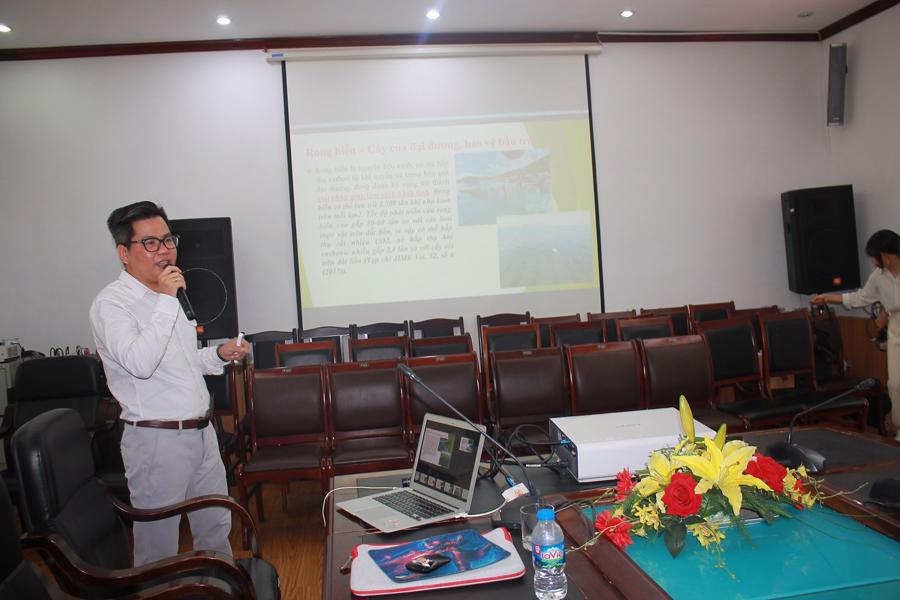
The “Blue Ocean – Blue Foods” program aims to promote responsible engagement from stakeholders in mitigating climate change impacts, improving the marine environment, and enhancing community livelihoods. It also aims to raise awareness among coastal communities about climate change and marine protection, encouraging businesses to embrace the “Blue Ocean” environmental initiative and promoting a responsible, circular economy to reduce the impacts of climate change in coastal areas through the “Blue Foods” program. The initiative will also foster the “Blue Foods Alliance,” a responsible seafood alliance.
The program will encompass various activities, focusing on three main areas.
First, raising community awareness about climate change and marine protection through collaboration with coastal schools on the “Blue OceanKid Hero” program and coordination with local authorities, fisheries associations, women’s unions, youth groups, and coastal schools to implement the “Clean Up Ocean” campaign. It will also engage media and communication channels to share and amplify the program’s stories and activities.
Second, engaging businesses in ESG (environmental, social, and governance) initiatives to protect the marine environment, including community awareness programs, beach cleaning campaigns, and the development of coastal livelihoods linked to climate change mitigation.
Third, promoting a responsible, circular economy that reduces the impacts of climate change in coastal areas through the “Blue Foods” program. This involves mobilizing businesses in the aquaculture value chain to embrace seaweed farming in Vietnam, thereby creating a comprehensive investment-farming-processing-consumption circular economy for seaweed. Concurrently, the program will foster the formation of the “Blue Foods Alliance,” a responsible seafood alliance.
DEVELOPING THE SEAWEED INDUSTRY WITH A FOCUS ON CARBON CREDITS
Dr. Nguyen Thi Sam, Director of JAPIFoods, shared that their products are “gifts from the sea,” sourced from farmers across Vietnam’s coastal regions. The program initiated by ICAFIS and the Vietnam Fisheries Society is highly significant for the environment, society, communities, and businesses.
“In alignment with the program, JapiGoods commits to contributing 10% of its total revenue. We will stand shoulder to shoulder with ICAFIS, providing free seaweed seeds to coastal fishermen and purchasing seaweed products to establish a comprehensive and responsible circular economy,” affirmed Dr. Sam.
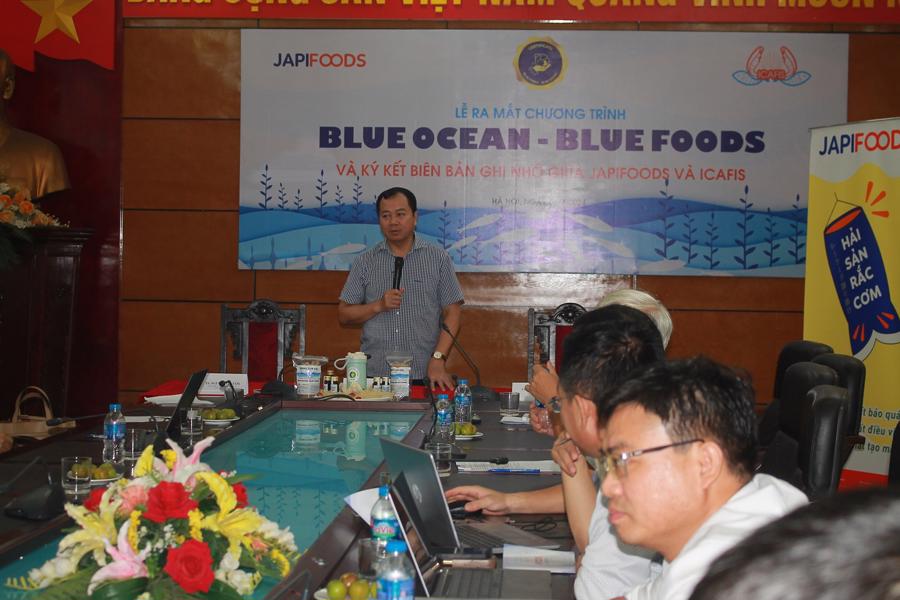
Dr. Tran Dinh Luan, Director of the Directorate of Fisheries (Ministry of Agriculture and Rural Development), emphasized the program’s practical significance, stating that it would enhance livelihoods, promote seaweed farming, and contribute to climate change mitigation.
According to Dr. Luan, there is overlap between tourism spots and seaweed farming areas in some localities, leading to a trade-off between tourism development and aquaculture. This issue has prompted Minister Le Minh Hoan to urge local governments to integrate aquaculture with tourism. Although the marine spatial plan has recently been approved, economic plans in most localities only include general aquaculture provisions without specific allocations for seaweed farming.
Dr. Luan pointed out the vast potential for seaweed farming along the central coast. Developing carbon credits for seaweed could increase its economic value, and combining seaweed farming with oyster and abalone cultivation would be beneficial. “Seaweed farming requires diligent care but offers multifaceted benefits, including carbon absorption. Some seaweed species can absorb CO2 up to 20 times more effectively, and the residual biomass after extracting valuable compounds can be used as high-quality cattle feed,” he added. However, he noted that Vietnam is lagging, as neighboring countries like Indonesia already have businesses investing in seaweed farming and processing. He emphasized the bright future of the seaweed industry.
Project “Quality High-Yield Rice Cultivation” – The Big Game and the 10 Principles
On the morning of January 5th, in Kiên Giang province, Deputy Prime Minister Trần Lưu Quang presided over a conference to implement the Sustainable Development Project for 1 million hectares of high-quality, low-emission rice cultivation linked to green growth in the Mekong Delta region by 2030.

